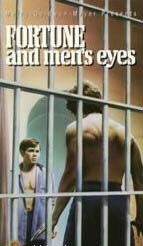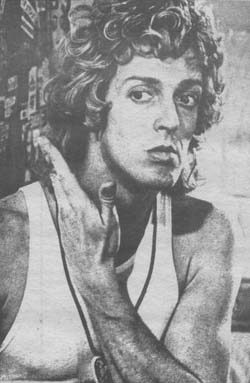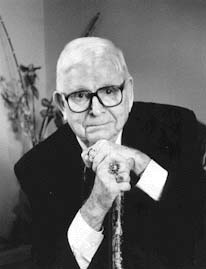
|
By Michael Kearns
The subtext of Greer's performance was, "I'm here, I'm queer, get over it." He was in our face, honey. (It's the reason I loathe the Oscar-winning performances of William Hurt in The Kiss of The Spiderwoman and Tom Hanks in Philadelphia; they put on the gayness, like the villain in a melodrama gluing on a fake moustache. The actors are always watching themselves and winking at the audience in collusion, practically saying outloud, "We're not really This Way," For the fun of it, rent Fortune and Spiderwoman or Philadelphia. Ask yourself, Which of these performances is entirely believable? Unflinching, uncensored, and unremittingly outrageous, Greer's screen turn was dazzling in its authenticity; perhaps, to this day, one of the most vividly portrayed gay characters to hit the screen. This was 1971 when there were scant representations of gays or lesbians in any medium and certainly only a handful coming from Hollywood (The Boys In the Band was released the year prior). To say Greer's performance was landmark is no exaggeration. To say that his career was political is an understatement. To say that Greer deserved more credit than he ever received is a fact (including an unforgivably underwritten obit in the Los Angeles Times). Greer was (and I don't use these words lightly) a trailblazer, a pioneer and a hero in the nascent days of gay liberation. Fortune was not Greer's first or last triumph although it is what he will be remembered for: breathing life force into that tough, vulnerable, self-hating, self-loving, manipulative, and crass Queenie. Greer first gained notoriety at the Redwood Room (where many gay stars received their initial buzz including the legendary Charles Pierce), performing stand up comedy.
There were several movies to follow (The Magic Garden of Stanley Sweetheart, The Strawberry Connection), in which Greer played straight characters, a demand made by his agents. I remember him telling me that his management wanted him to get married so they could make more money off of him. "I was gay at the wrong time," he joked. And that's the truth. Because Greer refused to play the game, his film career was tragically truncated. In spite of his undisputed gifts as an actor, he could no longer exist in Hollywood because he was gay. Period. He returned to the theatre and nightclubs where he would pretty much remain for the thirty remaining years of his life. There was The Rose with Bette Midler and perhaps a few other bones thrown his way from Hollywood. But he spent most of his time on the road, playing a wide variety of venues-from seedy neighborhood gay bars to elegant concert halls. He was, indeed, a very funny comedian. We all know that funny is often camouflaging an undercurrent of pain. When I would speak to Greer about the trajectory of his career, he certainly didn't defend Hollywood but he refused to be victimized by a town that is still grappling with depictions of homosexuality. Although he did not seem bitter, Greer did seem driven to succeed on his own terms. And, to a large part, although not a household name, he did. He was a mainstay on the gay and lesbian nightclub circuit for three decades and he also appeared in several theatre works. I remember seeing him in Mark Savage's The Ballad of Little Mikey at Highways. Greer was one of those people who wanted to be able to sing but couldn't. He had a rather long solo to "sing" and he was out of his element but mesmerizing. Part Rex Harrison and part Elaine Stritch, the stalwart performer sold the song in a gravelly recitative. He acted it with all his heart, mightily.
 I first met Greer at the Ivar Theatre in Hollywood where I was appearing in
the West Coast premiere of The Dirtiest Show In Town. Greer was a celebrity
guest and, after seeing the show, he invited the entire cast to his home in
the Hollywood Hills for a party. I wouldn't have been happier if it had been
Lucy's house.
I first met Greer at the Ivar Theatre in Hollywood where I was appearing in
the West Coast premiere of The Dirtiest Show In Town. Greer was a celebrity
guest and, after seeing the show, he invited the entire cast to his home in
the Hollywood Hills for a party. I wouldn't have been happier if it had been
Lucy's house.
In a poetic scenario, the Ivar Theatre is the last place I spent time with Greer. It's so odd that, over thirty years, we crossed paths dozens of times but our initial and final meetings were at the Ivar. About a year ago, we both appeared in a one-nighter, Endangered Species, a short play that was basically a series of monologues. It was the first time we'd actually appeared together on the same stage on the same night. But Greer had big plans for our theatrical teaming. He was adamant that we should do Jimmy Kirkwood's play, Legends, playing the roles originated by Carol Channing and Mary Martin. He promised to send me a script. "Which one is older?" I teased. "Darling," he said, in a Tallulah rasp, "I may be playing the older one but in the billing, just remember that 'G' comes before 'K'" He left me laughing.. I cried when I heard the news of Greer's passing of lung cancer on September 14. I knew he was a heavy smoker and assumed that trying to convince him to stop would be like his agents trying to get him married. But I still didn't want to believe that yet another strong influence in my life was gone. A peer, a friend. My soul sister, honey. Michael Greer was an original Keep in mind, this is not an actor who came out after his series was a hit; this is an actor who couldn't get a series because he came out. Without him, there would be no Harvey Fierstein or Sean Hayes; there would be no Queer As Folk; there would be no openly gay actors. His bravery was uncommon. His allegiance to the community was simply astonishing. His determination to be himself was inspiring. Attention must be paid to his death. A teary Kight says, "Michael was a forthright artist. He was so personable. He was a lovely man and I miss him desperately." Michael Kearns is a theatre artist who lives in Los Angeles. |
|
 Michael Greer
Michael Greer  Morris Kight: Enchanted by Michael Greer
Morris Kight: Enchanted by Michael Greer